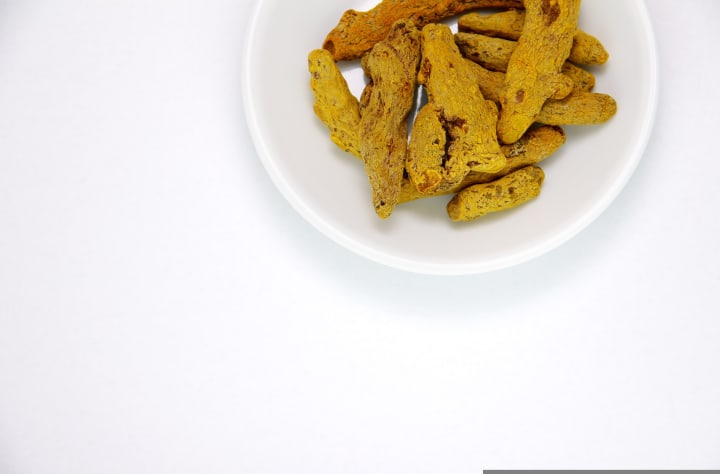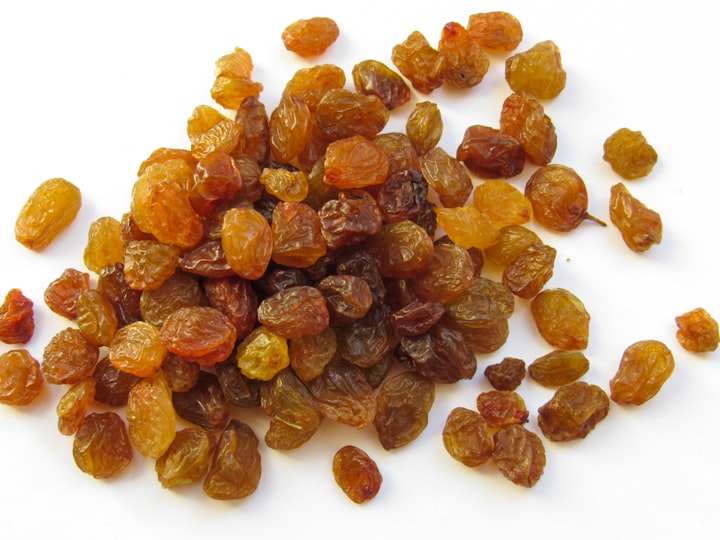The importance of turmeric for health and the body and the damage of turmeric
turmeric

What is turmeric
Turmeric, and what is known as turmeric, is a spice extracted from the turmeric plant (Curcuma longa), commonly used in Asian food, and is often used as flavoring or colored curry powders, mustard, butter, and cheese, and turmeric root is used It is widely used to make medicine because of its health and therapeutic benefits, and is also used to color foods and cosmetics.
Article contents
Turmeric nutritional value
Turmeric advantages
The health and therapeutic benefits of turmeric
Benefits of turmeric for teeth
Benefits of turmeric for allergic rhinitis
Benefits of turmeric for the liver
Benefits of turmeric for men
Turmeric benefits for skin
Benefits of turmeric for weight loss
Benefits of turmeric for pregnant women
Benefits of turmeric with milk
Turmeric damage
Warnings of using turmeric
Turmeric drug interactions
Recommended doses of turmeric
How to use turmeric
Turmeric nutritional value
The benefits of turmeric for the body are due to its high nutritional value, as turmeric contains:
carbohydrates.
fiber.
proteins.
Volatile oils.
calcium.
Iron.
magnesium.
manganese.
phosphorous.
zinc.
Vitamin B12, Vitamin C, Vitamin E, Vitamin A, and Vitamin D.
Curcumin, an antioxidant extracted from turmeric, helps prevent the growth of cancer cells.
And every 100 gm of turmeric contains 354 calories.
Turmeric advantages
Turmeric is one of the most effective nutritional supplements, as it is characterized by the following:
Turmeric contains biologically active compounds with powerful medicinal properties, the most famous of which is curcumin, from which most of the health and therapeutic benefits of turmeric are derived.
Turmeric is a natural anti-inflammatory, as it reduces several molecules that play key roles in inflammation.
Turmeric contains antioxidants that reduce the effect of free radicals.
Turmeric is associated with improved brain function and a lower risk of brain disease.
Turmeric reduces the risk of heart disease.
Turmeric causes many changes at the molecular level, which may help boost the benefits of turmeric in preventing and possibly even treating cancer.
For more: the benefits of turmeric for joints
The health and therapeutic benefits of turmeric
Turmeric has proven its effectiveness in treating and reducing the symptoms of some diseases, and among the health and therapeutic benefits of turmeric:
Benefits of turmeric for teeth
The benefits of turmeric for the body do not diminish its benefits for the teeth, as the benefits of turmeric for the teeth include all of the following:
Teeth whitening, as turmeric helps whiten teeth wonderfully, by mixing turmeric powder with coconut oil and using it as a daily toothpaste.
Treating mouth infections, as turmeric has antiviral and antibacterial properties, so turmeric helps treat mouth infections.
Treatment of gingivitis, where turmeric contributes to the treatment of redness and inflammation of the gums.
For more: the benefits of turmeric with lemon

Benefits of turmeric for allergic rhinitis
Curcumin reduces symptoms of hay fever, also known as allergic rhinitis, such as sneezing, itching, runny nose, and congestion.
Benefits of turmeric for the liver
Turmeric is known for its many benefits for liver health, which are as follows:
Turmeric removes cholesterol from the liver.
Turmeric cleanses the liver of toxins.
Turmeric reduces the side effects of alcohol on the liver by stimulating bile production and improving digestion.
Benefits of turmeric for men
According to a study conducted by researchers from the Albert Einstein College of Medicine in New York, it was found that the use of a topical preparation containing curcumin was effective in increasing blood flow to the genitals in a sample of rats, in addition to improving erections, however, more clinical studies need to be conducted to confirm this. Effectiveness and benefits of turmeric for men.
For more: the benefits of turmeric for men
Turmeric benefits for skin
Turmeric is an essential ingredient for the skin because it contains antioxidants. Here are the most important benefits of turmeric for the skin:
Reduces signs of aging.
Wound healing.
Treatment of Psoriasis.
Getting rid of acne scars.
Scabies treatment by mixing it with neem oil.
Benefits of turmeric for weight loss
The benefits of turmeric for slimming are as follows:
Detoxification of the liver, and this enables the liver to carry out its tasks of burning fats, as curcumin plays an important role in burning fats.
Regulating sugar levels and preventing sudden insulin spikes, thus preventing excess fat storage in the body.
Improve digestion and stimulate metabolism, which is important for losing excess weight.
Reducing appetite and feeling full; As turmeric suppresses the hormone responsible for appetite, and thus helps to reduce food intake.
Benefits of turmeric for pregnant women
Women during pregnancy are likely to benefit from the many health benefits of turmeric. But based on the evidence available so far, it is safer for pregnant women to consume low amounts of turmeric. Among the benefits of turmeric for the body during pregnancy are the following:
Helps treat freckles and melasma.
Eliminates inflammation at normal levels, relieving swelling and pain.
Boosting the immune system.
Maintaining healthy bacteria levels in the intestines, thus maintaining stomach health and relieving constipation and gas.
Increased flow of bile, which is essential for the breakdown of dietary fats during digestion.
Liver detoxification and blood purification.
Help regulate blood sugar and maintain lipids at normal levels.
Benefits of turmeric with milk
Turmeric has been used in folk medicine recipes in India for thousands of years. Turmeric offers many health benefits thanks to its anti-inflammatory and antioxidant properties.
Recently, turmeric drink with milk has become popular, which some call the golden drink, due to the combination of the benefits of turmeric with milk in one cup. Among the most important benefits of turmeric for the body when added to milk are the following:
Treat diarrhea and indigestion, but low-fat milk should be used because whole milk can aggravate diarrhea.
Detoxing the body, as eating a glass of milk and turmeric daily helps purify the blood and liver from toxins.
Reducing cold and flu symptoms, as turmeric with milk is very useful for colds and influenza.
Treating joint pain and relieving pain.
Adding a pinch of turmeric powder (1/2 teaspoon) to a glass of warm milk helps to stimulate the metabolism and also gives a good night's sleep when taken 30 minutes before going to bed.

Turmeric damage
It is considered safe to use turmeric when taken by mouth or applied to the skin appropriately. Turmeric is considered safe when used as an enema or mouthwash on a short-term basis. Turmeric does not usually cause significant side effects, but some users may experience stomach upset, nausea, dizziness, or diarrhea. It is not recommended to take very large doses of turmeric.
Among the harms of turmeric when it is eaten in quantities higher than those found in food to obtain the health and therapeutic benefits of turmeric:
Stomach disorders, such as nausea and diarrhea, are considered side effects.
Increased risk of kidney stones, because it contains oxalite, which is linked to calcium, causing the formation of stones.
May cause allergic reactions such as skin rash and shortness of breath.
Excessive consumption of turmeric may cause iron deficiency, as excessive consumption prevents the absorption of iron in the body.
Warnings of using turmeric
The categories that should avoid consuming turmeric, or take it after consulting a doctor, include the following:
Patients with gallbladder problems: Turmeric can make gallbladder problems worse, so turmeric should not be used in quantities higher than those found in food to get the therapeutic benefits of turmeric in patients with gallstones or obstruction of the bile duct.
Patients with bleeding problems: Taking turmeric might slow blood clotting, which could increase the risk of bruising and bleeding for people with bleeding disorders.
Patients with diabetes: Curcumin reduces blood sugar in diabetic patients, so it is advised to use it with caution in people with diabetes because it may lower blood sugar significantly.
Patients with GERD: Despite the many benefits of turmeric, turmeric can cause stomach upset in some people, or it may exacerbate GERD symptoms.
Patients with hormone-related diseases: such as breast cancer, uterine cancer, ovarian cancer, or uterine fibroids. Turmeric contains curcumin, which may act similarly to the way estrogen does. In theory, turmeric may make hormone-sensitive conditions worse, so turmeric is advised to be used with caution by patients whose condition is affected by exposure to hormones.
Use of turmeric and infertility: Curcumin may decrease testosterone levels, and reduce sperm motility when taken orally by men, which may reduce fertility, so turmeric should be used with caution by people trying to conceive.
Turmeric and Iron Deficiency: Eating large amounts of turmeric may inhibit iron absorption, so turmeric should be used with caution by people with iron deficiency.
Turmeric before surgery: Turmeric may slow blood clotting, which may cause bleeding during and after surgery, so you should stop using turmeric at least two weeks before the surgery.
More: Uses and benefits of turmeric for hair and skin
Turmeric drug interactions
The chemicals in turmeric can interfere with the effect of the following medicines:
Medications that slow blood clotting interact with the curcumin in turmeric, which may slow blood clotting. Taking turmeric along with medications that slow blood clotting may increase the chances of bruising and bleeding. Some of these medications include aspirin, clopidogrel, diclofenac, and ibuprofen. , naproxen, dalteparin, lexaparin, heparin, and warfarin.
Diabetes medication.
Hormone replacement therapy.
Using infertility medications that improve the number and movement of sperm.
Use of iron supplements to treat anemia.
Recommended doses of turmeric
The content of turmeric from curcumin is about 3% by weight, and the dosage varies according to the disease condition or the benefits of turmeric to be obtained, as shown in the following:
Allergic rhinitis (hay fever): 500 milligrams of curcumin, used daily for 2 months.
For patients with liver disease: 500 mg of a product containing 70 mg of curcumin, daily for 8 weeks.
Itching: 1.5 grams of turmeric taken in three divided doses daily for 8 weeks.
How to use turmeric
There are several ways to benefit from the benefits of turmeric for the body, as turmeric can be eaten or a drink can be prepared from it, such as:
Adding turmeric powder to food while cooking, by half a teaspoon to a teaspoon.
Prepare a turmeric mask with honey, aloe vera, or yogurt with lemon. This mask provides the benefits of turmeric for the body and face.
Using turmeric in preparing some hot drinks with different types of herbs and ingredients. Examples of turmeric drink include:
Turmeric and ginger tea, which provides the benefits of turmeric along with ginger to the body, as both are a rich source of antioxidants and inflammation.
Turmeric and lemon tea for weight loss.
Fresh turmeric tea.
Turmeric and milk drink.
Turmeric, ginger and lemon drink.
About the Creator
Enjoyed the story? Support the Creator.
Subscribe for free to receive all their stories in your feed. You could also pledge your support or give them a one-off tip, letting them know you appreciate their work.






Comments
There are no comments for this story
Be the first to respond and start the conversation.